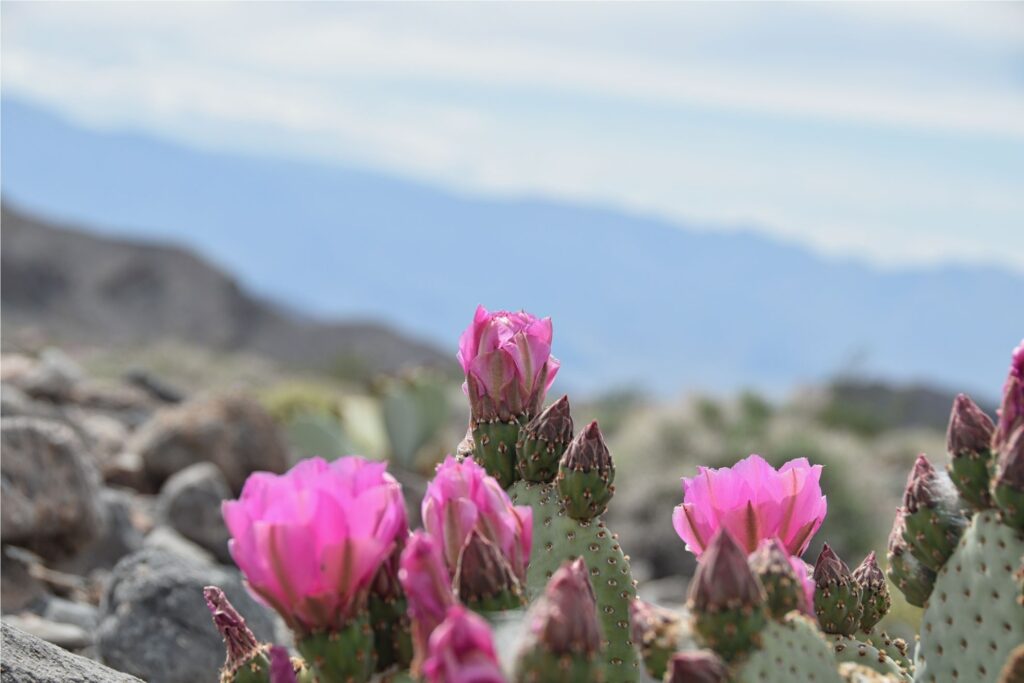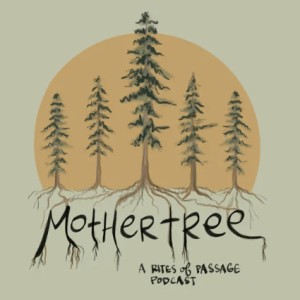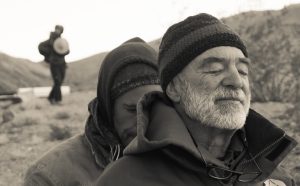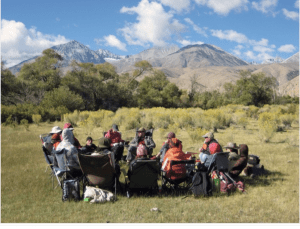
Rites of Alignment in a New Global World
Transcribed from Meredith Little’s talk at the “Into the Wild Conference”, Eastern Germany, 2011
I’ve been asked to speak about something I feel very passionate about. All of us are aware of how much is changing in our world today. All of us are feeling the tension and the challenge of how to stand up with so many new truths that are coming to us. All of us are aware, so much more aware than we were forty years ago, that what is happening somewhere far away in distance directly impacts our lives. And as human beings to know how to find harmony with the new truth of what’s happening in our world is a big challenge.
How to find alignment? In many ways alignment means to find harmony with and to stand in balance with, something that’s new. Always we have had this challenge as human beings, always nature has had this challenge. How does nature find renewal after a wildfire? How does nature itself learn how to find balance in a world that is always changing, from season to season, from summer to fall, to winter, to spring, with what happens in one season affecting the next.
How do we find harmony in a life that continues to grow and mature? An adolescent grows into adulthood and then says “Oh, now, who am I as an adult?” And maybe they decide to become a wilderness guide. And in that decision they must grow up into becoming a wilderness guide. The childhood of being a wilderness guide, the adolescence, the adulthood, and we have to grow up again. And I feel like one of the things that we must remember again is that nature and our nature is cyclical. We are constantly our becomingness.
In our modern upbringing we have this idea that life is linear; that we are born, we live, and we die and that’s it. We somehow move towards some place that is an end, a perfection. We grow up and then we know what’s right, what’s true. In the old way they understood that life doesn’t work that way. We are not what we were yesterday, we are not even what we are today. We are our becomingness, we are always becoming something. We are growing into ourselves, over and over and over again.
I had a friend whose name was Derham Giuliani, who died a year ago. He studied insects and animal behavior. Derham was fascinated by the work Steven and I were doing. Derham, more than anyone that I know, lived in nature the whole year. Very rarely did he come back to his little room in town. He lived in nature and he studied animal behavior and he studied his own nature. He would watch people come to us and return after their four-day solo. And one observation that he had watching our people return from their solo time was “You know, modern psychology is the study of the caged animal. And when you watch the behavior of a caged animal, it is very different from an animal in its own habitat, an animal in the wild.” His feeling was that modern psychology studies what happens when we take human nature and put it into four walls. He saw that an important part of our work was returning humans to their natural habitat, and returning to their own inner nature.
Much of our modern world is constructed out of living in our cage. Indigenous people who lived in intimate relationship with the land and the seasons, learned about being human by watching and being a part of nature. Every manifestation of nature, they said, was a piece of eternal truth and taught us how to be human, how to be our human nature. Humans are nature, and we grow and regulate in the same way that a tree grows and regulates. We are nature and the more we learn and observe how nature grows and becomes itself moving through the seasons, the more we learn about how to be continue to grow ourselves. The clues that we pick up when we are out in nature about being human are very healthy. They teach a lot about generosity, about cooperation, about what to do after there’s been a disaster, about relationships. The clues are healthy clues. The clues that we get when we grow up in our modern “civilized” world are often dysfunctional clues that aren’t much help.
And so in the work that all of us are doing with young people and adults in nature, there is an enormous remembering about our own nature. One of the biggest challenges that we have today in adjusting to completely new realities in our global world, is our attempt to separate human from nature. The more we separate ourselves from nature the less we are able to adapt to what’s happening in the world around us. Our nature knows how to adapt, to self-regulate, it knows how to process new givens.
One of the things that indigenous people knew, that in today’s world we try to forget, is that we cannot control what happens around us. We are not in control. They knew that at any moment a storm might sweep through to threaten their safety. They knew that they could slip and fall, be bitten by a snake, attacked by bear with no access to help. They knew that death was here at any moment, a natural part of life. This understanding was hugely important in how they understood and found relationship with their world.
In our world today we have this desire to somehow say “I’m in control of what’s happening. I’m not nature! I’m somehow bigger than nature and I can control it. I can put four walls around me, I can turn my thermostat up, I can stay warm when I need to even when it’s very cold outside.” And we forget that we are always at the mercy of what’s happening around us.
Life is initiating us over and over and over again, every day, every year, in a lifetime, small initiations and big initiations. Every time something happens to us we are changed. When something big happens to us, maybe we lose a loved one or we become parents for the first time, we are never the same again. If we go to our doctor and the doctor says we have a life threatening illness, we will never be the same again. This is how it works. And we try to pretend that somehow we can go back to how it was rather than turn into the new world and learn the skills of integrating what has happened and grow bigger than we were.
My feeling is that one of the things the natural world reminds us is that we are not in control, and offers lessons about our own way of adjusting to what happens around us. Our nature knows how to change. Our nature knows how to mature and to grow, and to adapt to the initiations that are happening to us all the time. When we live in the illusion that we are separate from nature we begin to mistrust our own nature and give our power away to someone else.
We go to people who we think are “powerful” or well-known, or they advertise themselves as being very wise with all the answers for our “happiness” and so we go to them and we give our power away. We mistrust and betray our own nature. The more we expose ourselves to nature outside, and are moved and grown by just that exposure, the more we begin to listen to our own nature.
I’m going to be speaking about the four shields of human nature, which is only one representation of something that can be found pan-culturally around the world. Steven and I learned this particular system from a northern Cheyenne man, Hyemeyosts Storm, yet there are similar 4 directions systems in many other indigenous teachings. This is not surprising as the teaching came from the land, and is an earth-based wisdom.
The qualities associated with the four directions are also aspects of our human nature. In a relatively healthy and balanced person (or plant or raven) we have access to all four of these qualities and aspects of our nature. If we do not have access to all four, it begins to be challenging to readjust, realign and mature into the new givens in our life as we are being initiated. We can become stuck or handicapped.
One aspect of our selves is our body, and the instincts and reactive emotions that come through our body. Having access to these instincts and wide range of emotions is essential to our safety, and to processing life. Another aspect is our psyche and the ability to be self-conscious, instead of just reacting. To be able to say “I’m feeling angry”, or “I’m feeling sad”. We begin to define our values and who we are uniquely. The third aspect is the tool of our mind, the ability to listen to the information coming from all aspects of ourselves, to learn necessary skills, and to make decisions about our life to live who we are as best we can in the world.
And the fourth is that aspect of ourselves that we are born with that yearns to touch what is invisible. That aspect that learns how to feel our place in something that is so much bigger than we are, or than we can rationally understand. Spirit, God, Mystery; finding our relationship within the great mystery of life and death. And here also is the ability to birth ourselves into a new phase of our life.
If we don’t have all four of these alive within us, if we don’t have the information that is coming to us from these four aspects of ourselves, we begin to be handicapped in our ability to grow. Some of the messages that we have gotten in the last generations make it more difficult to engage with the changing world from our wholeness.
One message has been that our emotions are dangerous, and it is inappropriate to express them. We’ve tried to numb out our anger, grief, fear, even overwhelming joy. And yet in the process of growth, the first place we naturally go is our body’s instinctual response to what’s happening. Perhaps it’s saying “something dangerous is happening out there, and it scares the hell out of me! I’m angry, and I’m afraid, and I feel helpless.” Until we have the courage to be able to sit and stay in that place and experience these emotions and our yearning to be alive and safe, we can’t go any further. And by being with these emotions, we begin to move in the direction of healing and appropriate action.
The next phase is the challenge of being able to take those emotions inside and reflect on how they define who we are. We look at our values and personal limitations, we become self-consciousness and begin to build a story of who we are and who we are not. This self-defining doesn’t end, and is constantly being refined and redefined by the experiences of our life. We constantly need to die to what was and how we defined ourselves, so we can get bigger into what we are becoming. Learning the art of ego death. This self-honesty and “birthing” of the new, can be painful.
In the last generations physical death has become a taboo to talk about. After witnessing devastating mass war, genocide, and violence on a world scale, people began to shut down. How many times do you sit with your loved one and talk about your thoughts about death? How many times when people are physically dying, do they have people to talk to about what’s going on? We’re fear driven. And in the same way, at the same time, that’s reflected in our fear of going inside to feel what is there, and fear that ego death will destroy us.
Perhaps we’ve done something we feel is wrong, or had an argument that we didn’t do well. We go inside and say “Oh my god, look what I just did, I hurt someone, I feel so badly”. To be able to do this is healthy. But the message we’ve often gotten from our parents and our culture is that to do this is dangerous, it will hurt too much, and hurting means something is wrong or something we cannot survive. Sometimes the message is that if we’ve done something “bad”, then we are a bad person. Mistakes are not acceptable. So we blame it on someone else. Or we just don’t go there, living on the surface of our life. And it stops us from the fertile land of initiation into our becomingness.
So, when we’re given the huge challenges and knowledge of what’s happening in our global world, and we have the courage to experience the fear and anger and deep sadness about much of what’s happening, it then moves us into self-reflection and questions like “Oh my god, what can I do? What’s my relationship to what’s happening? Am I helping or am I hurting and adding to the problems?” That ability to feel enough safety to explore these painful questions, is absolutely essential to our growth and to reaching some understanding about our next action. If we can’t do that, we go numb, and we walk around letting other people define us, and we being victims of circumstance.
Another challenge we that have in our modern world is how fast it’s going. There is such a fear of stopping and reflecting on what’s happening around us. The pace of our modern world is so fast that it’s almost a taboo to take the time out to go inside and check out what’s whispering there. The message that we get is that doing “nothing” is unproductive; that there is value in constantly being busy.
In the old way, our nature knows that what we need as a fundamental part of our life is the time to step back, be quiet, be in the place of the question, and integrate the new happenings. “Who am I now that I know this new information? Who am I now that I’ve had this recent defining experience?” We need a way to step back from our life and consciously be in the fertile ground of “not knowing”, out of which arises new understanding.
Of course, this is what we offer to the people that we take out, yeah? This is part of the magic of the work that we share. When we take people out in nature and especially when we take people out on solo time, what happens is that they get that chance to stop. And first what often rises to the surface are all those difficult emotions that we have been pushing down. These feelings that haven’t been given the time to be heard. And with no one or nothing else around to distract us (except beauty!), we have to listen. And once we really listen and experience the feelings and the questions, the new understanding or action arises naturally.
So, what is it that we can bring that supports people to move through the natural changes of their life, and the current major realignment needed in our world today? This is the question that I never stop asking – what can we bring, what does it mean to be a guide? What are the elements that foster this deep work? For me some of the more important elements that I can bring are meaningful rites of passage, non-judgmental witnessing, exposure to nature and the teaching and clues that nature offers for our own growth.
The challenges in the world today asks for us to question the choices we make in our own personal lives, as well as in our family and community life. These are big enough, but now we are confronted with the truth that what happens 5000 miles away from me, impacts my life directly as well. How do I adjust to that mind-blowing concept without getting stuck in the feelings of helplessness and
despair?
Biologists say that we are born with a “selfish gene” in our DNA, and it is a gene that has actually been very helpful. It says “I will do anything, I will lie, cheat and steal in order to save my life and my family’s life”. Today, we must suddenly acknowledge that our self-interest and survival depends on the health of the whole global world. A bit of an overwhelming reality. And I know that no matter how much I recycle and attempt to conserve energy it’s not going to save the world. And yet we do have the ability to stand in our truth and integrity as best we can. Instead of “how can I save the world”, we must ask “How can I serve? How can I show up for the people? How can I show up for my children? How can I show up for the land?” And in that, claiming our own humanness.
How can we support each other to grow into our humanness, and to recognize that it is not about reaching some kind of perfection, but it’s about wholeness? How do we help each other embrace all that we can be, the dark and the light, the fallible and the godly. We are grown through difficult times, and learn from making mistakes. When our friend is hurting, or going through a time of depression, can we walk with them instead of turning away, can we support them knowing that there is nothing wrong with them if they are going through a hard time, there is nothing to “fix”. Life is not about fixing. We can’t solve life. We can only grow into it, and we can only support each other to grow into it with our own unique authenticity.
What are some of the things that support our vitality, wholeness and realignment to this new global world? I feel strongly that the work we share of bringing people into nature in meaningful ways is helping to heal the illusion that we are separate from nature. This in and of itself is huge. We need the clues that the land offers to remember how to grow into our own nature. We need to expose ourselves to the cold and heat, rain and storms, the act of lying on the ground or walking in the night. These things expand our sense of self, and our sense of relationship with the land and all of life. We feel how we are animal and influenced by the same cycles and winds as all other creatures.
The more we learn to trust nature outside of ourselves, and to watch the modeling it offers for our own living and dying, the more we begin to trust our own nature and listen to it as well, rather than looking outside ourselves for the answers.
Another way we can support each other is to get out of this modern way of thinking that life is about fixing and solving, and recognize that life is about becoming. We are always becoming. And if we can walk with, listen to, and empower each other to find our own way through these times of dying to what doesn’t work, and laboring to birth the new expanded identity and self-discovery, we are offering a huge gift.
Indigenous communities recognized that during times of change there is a certain chaotic energy that comes up. If there are no elders to help hold, guide and witness the people coming through and out the other side, this energy would leak out in dangerous ways and could hurt the individual and be dangerous for the community.
In our world today there is little guidance. Where are the elders? Where are the guides? We are going through dangerous times, radical shifts in thought and awareness are happening, we need support in finding our new place in relationship to the massive changes of fact and awareness. Rather than a lot of “experts” telling us how to be and act now, we hunger for assistance in finding our own way through to a healthier new paradigm. We need each other to witness our evolving story, and we need meaningful ways at appropriate times to formally mark stepping into a new phase of life and maturation.
It takes a long time for our DNA to mutate. But one of the gifts of being human is that we have the ability to be self-reflective, becoming aware again and again of our evolving values and what is important to us. We are ethical animals. Amazing! We have the sense of what feels right and what does not feel right. We have the ability to feel guilty and ashamed. To be overwhelmed by guilt and shame can paralyze us, but guilt and shame in and of themselves are not bad. They’re actually a hope. That if we spend time going inside and looking at our relationship with what’s happening around us, to feel how we are part of the problem, we have the ability to change our values and our actions. This can happen a lot faster than changing our DNA. But it takes a lot of hard, dark, and often painful work.
Another quality that we have as humans is that we can change our mind. We can see that what worked five years ago doesn’t work anymore. What we had been assuming was true, and making choices based on that, were now shown as incomplete. We must change our mind. We need each other to put forth these hard interchanges that challenge our assumptions. We need to reach out and recognize that one of the most important things we can do is to create good relationships. That means not just with the children, not only with our communities, but it means good relationships with people around the world. It means recognizing the natural biological truth that there is no life without diversity. Until we learn to have good relationships and to truly listen to people who are of different ages, values, lifestyles, faiths, cultures, our story of the evolving global world will be incomplete.
And so I want to thank all of you. I know I’m speaking to a group of people who know what I’m talking about, who are already doing this work, doing their own personal work, supporting others to do their work. I just feel a lot of gratitude that I’m not alone, you’re not alone, and that we can keep talking about what it means to guide people through changes in their life. And as we do we begin to hear the new story that’s emerging in our world today. We may not save the world, but it will feel good to be human together. It will be inspiring to be with others who stand in their true nature and have the courage to show up for the challenges of our time.
Share This
Related posts




